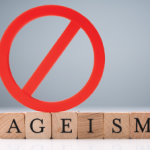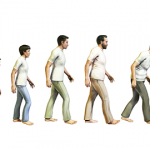Another aspect of addressing ageism is having a willingness to apologize. Ageism is so ingrained into our being that it is impossible to imagine that we can completely avoid its entry into our relationships. We will need to apologize when we inadvertently cause distress to others. An apology does need not be dramatic or self-flagellating. Neither does it need to be defensive. Sometimes a simple, “Thank you for pointing that out. I hadn’t thought about it that way,” can be transformative, so long as it comes from the heart.
In this case, because of my long-standing relationship with the patient, saying “I’ll talk to him afterward” seemed to be enough. It may feel awkward, but admitting fault catalyzes growth, and growth is all that we can ask for as we literally grow older.
Role-Modeling Change
For all that we talk about words, what is unspoken is often just as important as what comes out of our mouths. Precisely because of that power differential in clinic, we are being closely watched and our reactions are being monitored. How we listen to patients, how we talk with colleagues and how we reflect on our own behavior are key components of the encounter, and we can use these to role model change.
As many wise people have said (but notably not Mahatma Gandhi), we must “be the change [we] want to see in the world.” This necessitates being intentional about language, including body language. It means consistently engaging in positive, open, prosocial body language that mirrors our words and affirms the worth and complexity of our older patients. This is even true when there seems to be only two people in the room.
Seems to be is the key phrase here because we are, in truth, the products of thousands of encounters before us. When we have the discipline to consistently role model respect for older individuals, we are having a multiplicative effect on the encounters that we will have in the future. Truthfully, a one-time moment of political correctness is unlikely to make a meaningful difference. But repeated, quiet acts of dignity and thoughtfulness accumulate over time.
All of this requires deliberate self-reflection. We must interrogate our own biases, examine our automatic responses, and be honest about the ways in which we fall short. In the end, we must be willing to change, not because someone is watching, but because it’s the right thing to do. Integrity matters, as it always has, and always will.


